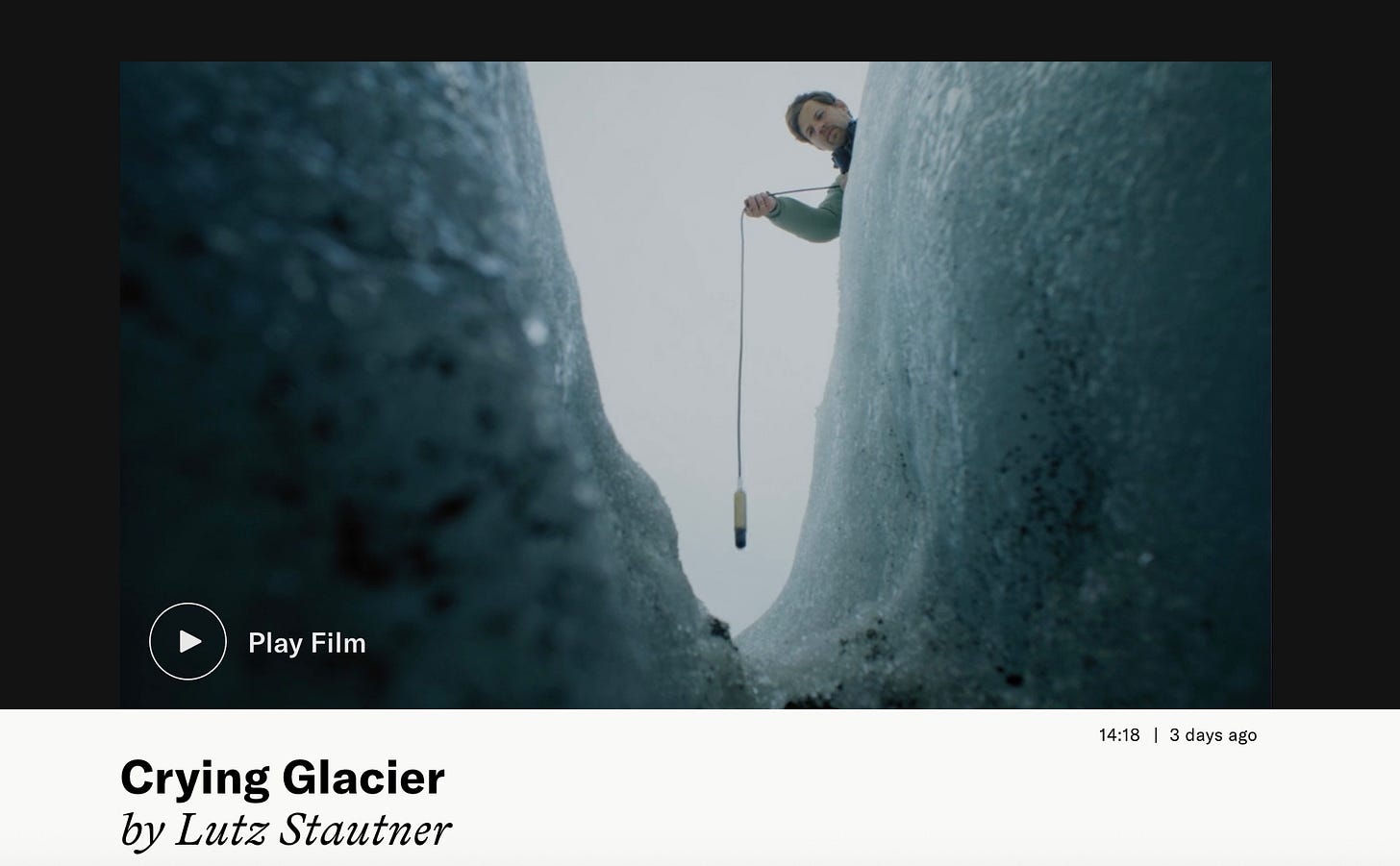Crying Glacier
An artist who listens to the voices of ice before they vanish
This week, I have a request: please watch a short film. It’s just fifteen minutes long. It is about a glacier. And it is about listening. The Crying Glacier follows sound artist Ludwig Berger to the Morteratsch Glacier in the Engadin valley of Eastern Switzerland. With hydrophones and contact microphones, he captures the hidden voice of ice: the trickle of meltwater, the gurgle of streams beneath, the crushing of moraines under the weight, the pop of air bubbles trapped for centuries, the groan of a body slowly dying. What we hear is not background noise, but the voices of ice, fragile and immense.
I have written before about glaciers collapsing. This film shows a quieter collapse. Not the roar of disaster, but the slow unravelling, captured as sound. Berger calls us into intimacy, into a way of listening that is not control, not measurement, not even storytelling—just presence.
It reminds me of a woman I met in Beijing a year ago, Jiao Jiao. She is part of an artist collective called Memories of Glaciers, which travels to China’s retreating glaciers. They drill and collect ice cores, not to study, but to rescue and preserve them, creating a kind of memory archive of ice that will soon be gone. Their work, like Berger’s, is about awareness and bearing witness.
It is hard to listen to Berger’s sounds without grief. These are voices that may not be with us for long. Toward the end of the film comes a line that chills: “Without climate protection, it is likely that Ludwig Berger’s recordings may outlive Alpine glaciers.”
That sentence lands like a punch, because we may soon know these giant frozen rivers only through archives, not landscapes.
But I invite you not to turn away. Please take the fifteen minutes. Watch. Listen. Not because it will give you hope, or a plan, or a solution. But because listening is part of how we stay human in a time when worlds are ending.



Beautiful. Heart breaking. And such an amazing way to show what is going on and invite us to the more-than-human realm.